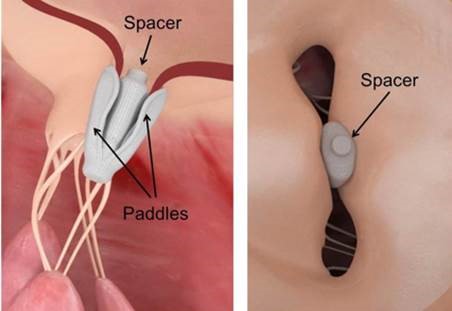The Latest Trials for Mitral Regurgitation | Atrium Health
Mitral insufficiency or regurgitation (MR) can result in lifestyle-limiting shortness of breath and can lead to heart failure hospitalizations and death. But many patients can’t handle surgical therapy due to comorbidities or advanced age.
There’s good news. Less invasive, catheter-based therapies have developed, including the FDA-approved MitraClip, and now a number of emerging technologies are starting clinical trials – including one available at only a select few centers in the country.
MitraClip: Expanding to More Patients
MitraClip is a device delivered by a catheter through the femoral vein and used to grasp the anterior and posterior mitral valve leaflets together to create a two-opening valve that reduces the leak. There are many advantages: It’s less invasive than surgery, performed on a beating heart without incision, and boasts a lower risk of complications, quicker recovery and shorter length of stay.
MitraClip is currently FDA approved for patients with severe symptomatic primary MR who are poor surgery candidates. And through a clinical trial, it’s also being studied for patients with severe secondary MR.
Want to know more? Get details on the treatment and who’s a candidate.
The Latest Trials for MR
MitraClip isn’t the only catheter-delivered, less invasive mitral valve replacement technology entering clinical trials. At Sanger Heart & Vascular Institute, we’ve been selected as one of only five centers in the US to offer one of the newest MR trials: the Edwards PASCAL™ Mitral Valve Repair System.

The Edwards PASCAL™ Mitral Valve Repair System has started clinical trials for patients with clinically significant MR (primary and secondary). The PASCAL System consists of an implant with a central spacer that acts as a filler within the mitral valve regurgitant orifice and is attached to the valve leaflets by two paddles and clasps.
It is delivered through the femoral vein through a trans-septal catheter and is guided into place in the heart by trans-esophageal echo. The spring-loaded paddles (about 25mm width in grasping position) and clasps (10mm length) are wide and allow distribution of load across the surface area of the inserted leaflets. The clasps can be operated either simultaneously or independently to facilitate leaflet capture in complex anatomies. The convex curvature of the tip of the paddles aims to reduce tension on the native valve leaflets.
Patients with clinically significant, symptomatic MR of either primary or secondary etiology are eligible to participate. This is particularly important to the large group of patients with secondary MR for which no transcatheter therapy is currently FDA approved.
Another trial, the Edwards Cardioband™ Mitral Valve Repair System has started clinical trials for secondary MR and is designed to reduce the mitral annulus to minimize regurgitation. It is also delivered via the femoral vein, and the implant is tailored to reduce annular dimensions based on individual patient needs.
Sanger Heart & Vascular Institute has been selected as one of only five centers in the US to study the Edwards PASCAL™ Mitral Valve Repair System in the CLASP Early Feasibility Study.
Your Referral Partner for Mitral Regurgitation
- One of the highest volume minimally invasive mitral surgery centers in North and South Carolina
- The highest volume and most experienced catheter mitral repair center in North and South Carolina, with over 13 years of experience and hundreds of patients treated
- Nationally recognized transcatheter mitral valve center and one of only five centers in the US selected to participate in a study of the Edwards PASCAL™ System technology
- Participating in the study of Edwards Cardioband™ Mitral Valve Repair System technology and Tendyne™ trans-catheter mitral valve replacement technology
- Expertise in transcatheter mitral and tricuspid valve-in-valve replacement therapy for failed bioprosthetic surgical valve
Referral is easy for you and your patients. Appointments are available within one week or patients may be transferred hospital to hospital. We guarantee seamless communication every time and your patients will always return back to you. We also give every referring physician our cell phone numbers and email addresses so you can contact anyone on our team at any time.
Contact us. Call 704-617-8154 or email SHVIStructuralHeart@AtriumHealth.org.
